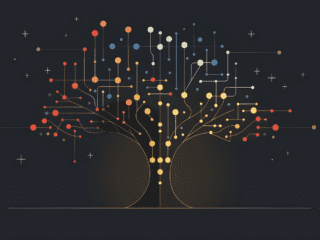Last week, I wrote about a few common psychological biases humans share. Today I’ll add a few more.
Confirmation Bias
We’re too quick to accept information confirming what we already believe to be true… and reject evidence suggesting we’re wrong.
When testing our ideas, we:
- Collect only the evidence that supports us
- Interpret information in a biased way, and
- Recall information selectively
Evidence that our existing beliefs are wrong is ignored, discounted or forgotten. As a result:
- We’re overconfident in our beliefs, and hang onto them even in the face of clear evidence we’re wrong. The consequences in military, political and criminal justice contexts are often disastrous.
- When opposing parties are shown the same evidence, attitudes become more rather than less polarized.
Texas Sharpshooter Fallacy
This fallacy is named after a mythical Texan who fires random shots at the side of barn, then paints targets around the tightest clusters and claims to be a sharpshooter.
We tend to seek out connections between pieces of information. When presented with information that’s actually random or coincidental, we’ll interpret and manipulate it to find patterns and meaning. (The Virgin Mary in the tea leaves.)
This fallacy explains some interpretations of Nostradamus. His quatrains are liberally translated from the ancient texts, taken entirely out of context, then cited as remarkably accurate predictions of modern events… after the events have happened, of course.
The Dunning–Kruger Effect
“In the modern world the stupid are cocksure while the intelligent are full of doubt.” (Bertrand Russell)
We inaccurately assess our own abilities… but our own shortcomings prevent us from recognizing our mistake:
- The unskilled over-rate their abilities. (They lack the intelligence or insight to assess themselves accurately. In the original studies by Dunning and Kruger*, participants in the 12th quartile estimated themselves to be in the 62nd.)
- The highly skilled under-rate their abilities. (They wrongly assume others will find tasks as easy as they do.)
So we get the perverse situations where:
- Incompetent people rate their own abilities higher than the competent, and
- Real talent weakens self confidence. (“If I can do it, anyone can.”)
Interestingly, the misperception of the incompetent stems from an error about themselves; the misperception of the skilled stems from an error about others.
“Ignorance more frequently begets confidence than does knowledge” (Charles Darwin)
* Kruger, Justin; David Dunning (1999). “Unskilled and Unaware of It: How Difficulties in Recognizing One’s Own Incompetence Lead to Inflated Self-Assessments”. Journal of Personality and Social Psychology 77 (6): 1121–34.
















